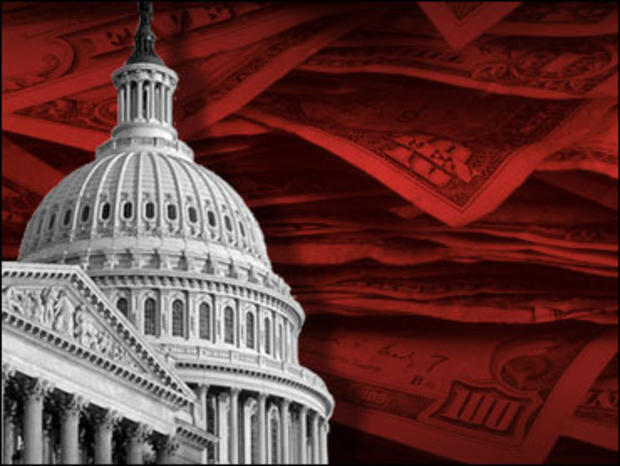Lobbyists, special interests swarm super committee
Lobbyists and advocacy groups are flooding the so-called congressional "super committee" with requests and demands as the group searches for ways to find at least $1.2 trillion in budget savings.
The bipartisan group of 12 members of Congress has until November 23 to draft the deficit-reduction plan, which could call for dramatic budget cuts in Medicare, Defense Department spending and other areas. As the "super committee" continues with its largely closed-door meetings, special interests are doing all they can to make sure the their concerns are part of the discussion.
Since opening up its website to public comment, the super committee has received nearly 180,000 suggestions for finding budget savings, the Los Angeles Times reports. The requests have come from lawmakers, interest groups and individual citizens.
But some special interests are essentially forgoing the website, opting instead to use back-door channels to lawmakers to exert influence. The American Petroleum Institute, for instance, has declined to submit a formal recommendation but is using its personal contacts with super committee members to lobby against closing tax loopholes for oil companies, the Times reports.
Nearly 200 companies and special interests have reported that they are lobbying the super committee, Politico reports, after reviewing recent federal lobbying filings. The health care industry has reportedly sent the most lobbyists to pressure the 12 lawmakers.
Members of Congress, particularly Republicans, are looking for ways to scale back federal health spending. If the super committee fails to agree to a plan for $1.2 trillion in savings, that would "trigger" across-the-board spending cuts, including payment reductions for Medicare providers.
"It's not like they are looking at ways to improve anything. They are just looking at ways to chop," Rick Pollack, a lobbyist for the American Hospital Association, told Politico.
The Defense industry has the most to lose if the super committee fails to meet its mandate and the "trigger" is pulled. The trigger includes $600 billion in defense cuts, and the defense and aerospace industry launched an aggressive lobbying blitz last month to stop that from happening.
"Defense has been cut into the bone, and we cannot have that continue," said Marion Blakey, president of the Aerospace Industries Association.
Lawmakers appear to be listening.
"We've gone past cutting the fat," Rep. Howard "Buck" McKeon, R-Calif., chair of the House Armed Services Committee, said earlier this month with respect to defense cuts. "We've gone past cutting into the muscle, and if these other hits come from the trigger, if the super committee is not able to do their work... we're into the bone, and it's all over."
McKeon and the rest of the Republicans on the Armed Services Committee put in a formal request for the super committee to refrain from any further defense cuts.
The trigger would mean drastic cuts for the Pentagon, but it's unclear if they would even be enacted: Congress would have a year before they went into effect, giving them time to reverse the budget cuts.
So far, there's been little sign of progress from the super committee. The group could soon consider a tax reform plan expected from Rep. Dave Camp, R-Mich., chairman of the House Ways and Means Committee.
